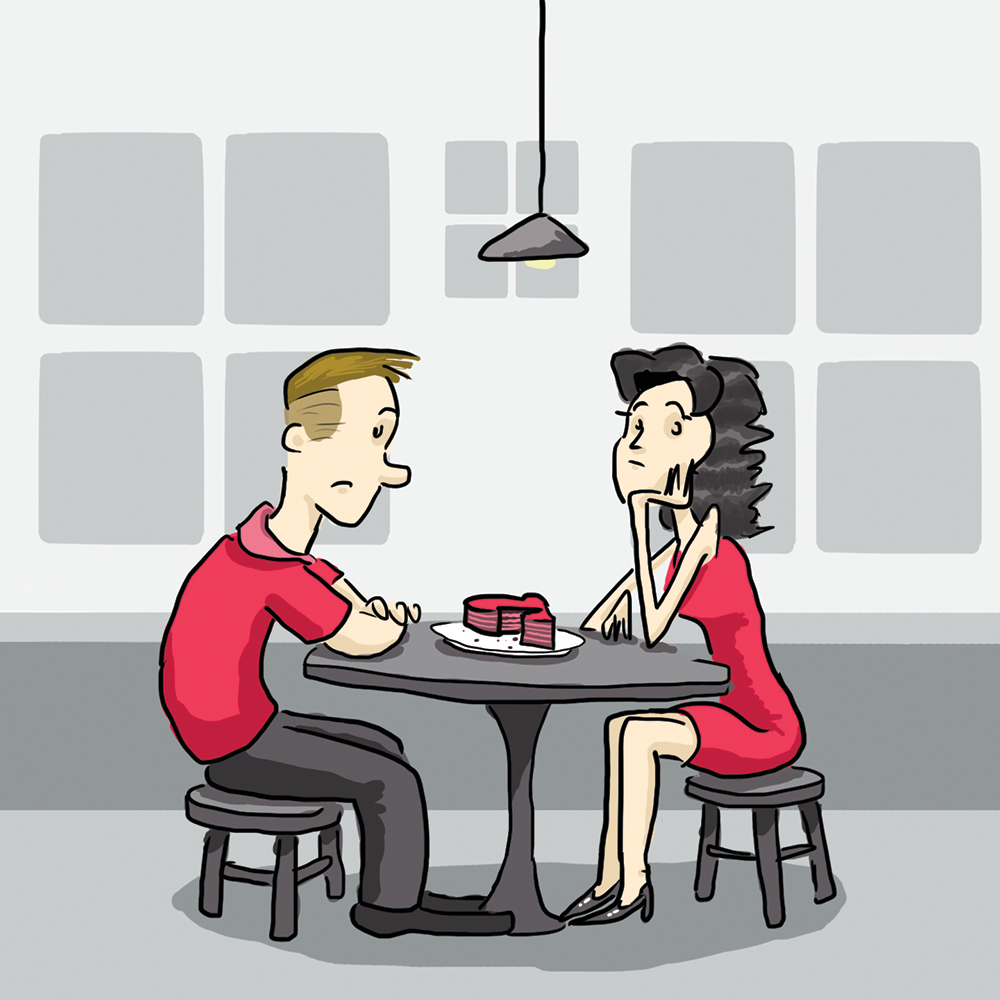Many Biola couples tend to skew from the secular dating mold — most have avoided the initial romantic infatuation known as the Honeymoon Phase.
Stony Brook University defines romantic infatuation as a state in which one or both partners experience strong feelings of desire and all-encompassing obsession, all driven by overactive neurotransmitters and societal messages of romance.
IMMEDIATE ATTRACTION
Chris Grace, professor of psychology and director for the Center of Marriage and Relationships, said the Honeymoon phenomenon may specifically affect Biola students.
“Those who have no relationship, no friendship, and there’s just an immediate chemical or attractiveness that happens, and then they believe ‘Wait, this is love!’” Grace said. “Well now they’re describing a very clear hormonal reaction.”
Upon interviewing several couples at Biola, the phenomenon took shape in varying circumstances and perspectives. Biola students described the process as one that could be overcome, but was admittedly a dangerous way of strengthening a connection. Sophomore communications major Annie Richards and sophomore human biology major John Kolar celebrated their fourth anniversary Feb. 8, 2016.
“There was immediate attraction, but we didn’t really talk to one another,” Kolar said. “We never really left the honeymoon phase. Thinking back, there has never been a time where things were duller or boring. It never really switched. It’s always just been an awesome time.”
MAINTAINING A FRIENDSHIP
Interestingly, every couple agreed that being friends prior to the relationship could potentially hinder the phase. Maintaining a friendship for a time prior to dating was preferable to dating immediately based on intense feelings.
Grace also articulated that students can reach a dangerous place should they isolate themselves and continue in this phase of fascination. He advised students to always maintain several friendships through dating and even ask for advice from trusted councils should any red flags arise.
“This neurotransmitter, this love neurotransmitter is flowing through them and they’re going ‘I feel alive, I feel complete, I feel whole for the first time and this is just something that just happened, this is awesome, this is amazing, this must be love.’ Well guess what. No humans are designed for that to last very long,” Grace said.
Grace explained the opponent process theory of emotion, in which a person’s emotional state swings in such a way as to oppose itself long term. The euphoric happiness people experience upon getting involved in a new relationship can, over time, fade and even oppose itself into a hatred or staunch irritation toward the person.
“That strong high feeling gets replaced and pulled down, which is why no one can maintain that emotion forever and people who believe that that’s a sign of love and marriage, or sign of awesomeness, it fades,” Grace said.
AN OBSESSION PHASE
Megan Reade, former resident advisor for Alpha and current resident coordinator for Tropicana off-campus apartments recently got engaged to her long-time boyfriend.
“I would definitely say it’s almost like an obsession phase, where you just want to be with that person possibly because you don’t know them that well or possibly just because you do already know them well and you just really want to spend all your time with them. Potentially based on common interest and sometimes trying to find those common interests or making those interests the same,” Reade said.
Freshman Christian ministries major Daniel Kohn and freshman liberal studies major Alisha Fodera agreed to prior friendship on the grounds of there being a distinct level of intentionality. The couple were friends for two years before their relationship began.
“We still did [go through a honeymoon phase]. I just don’t think it lasted as long as it usually does. I feel like it was just, ‘I’ve been thinking about this for a while and now it’s actually happening’ kind of thing,” Fodera said. “But after a while, it was just, ‘This is life, and now I’m trying to see if I’m going to be with him for the rest of my life.’ So it was never really, ‘Wow I’m so in love!’”
Growing up, all of us tend to follow the examples set before us. For Biola students, many of whom were raised in the church, this means they model relationships after those observed and deemed most beneficial and admirable.
“You hear from your parents or couples in the church or outside the church, you always hear them saying that their spouse is like their best friend,” Kohn said, “It’s nice to have a friendship and then build off of that, rather than, ‘You’re attractive, let’s just try it out.’”
General sentiment exposed the preference for prior friendship. However, each relationship varied on how long that friendship lasted or should ideally last. The need varies from couple to couple, with relationships thriving in every environment of initial friendship and continuing growth.







